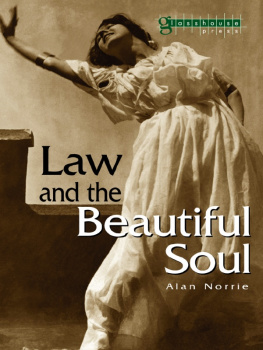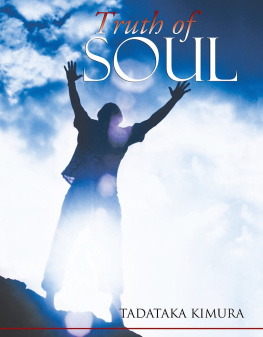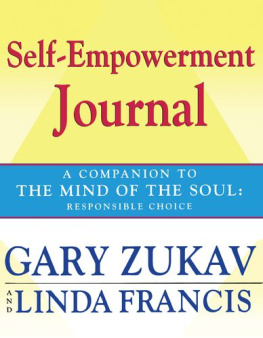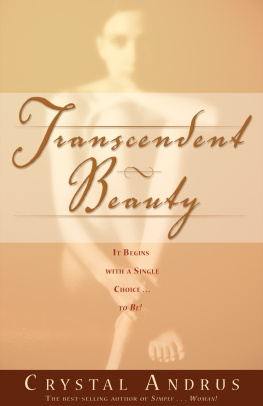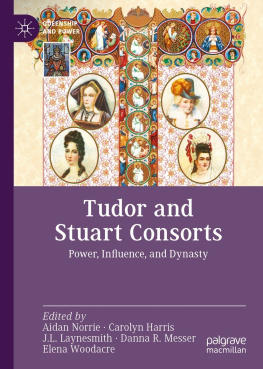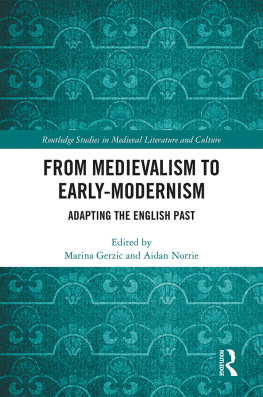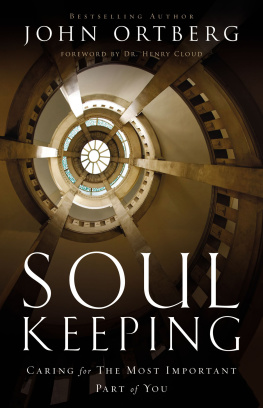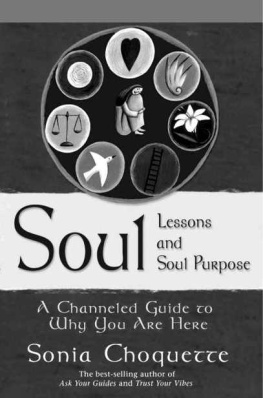Norrie - Law and the beautiful soul
Here you can read online Norrie - Law and the beautiful soul full text of the book (entire story) in english for free. Download pdf and epub, get meaning, cover and reviews about this ebook. City: London, Portland, Or, year: 2005, publisher: Published in the United States by Cavendish Pub, genre: Religion. Description of the work, (preface) as well as reviews are available. Best literature library LitArk.com created for fans of good reading and offers a wide selection of genres:
Romance novel
Science fiction
Adventure
Detective
Science
History
Home and family
Prose
Art
Politics
Computer
Non-fiction
Religion
Business
Children
Humor
Choose a favorite category and find really read worthwhile books. Enjoy immersion in the world of imagination, feel the emotions of the characters or learn something new for yourself, make an fascinating discovery.
Law and the beautiful soul: summary, description and annotation
We offer to read an annotation, description, summary or preface (depends on what the author of the book "Law and the beautiful soul" wrote himself). If you haven't found the necessary information about the book — write in the comments, we will try to find it.
Law and the beautiful soul — read online for free the complete book (whole text) full work
Below is the text of the book, divided by pages. System saving the place of the last page read, allows you to conveniently read the book "Law and the beautiful soul" online for free, without having to search again every time where you left off. Put a bookmark, and you can go to the page where you finished reading at any time.
Font size:
Interval:
Bookmark:

First published in Great Britain 2005 by
The GlassHouse Press, The Glass House,
Wharton Street, London WC1X 9PX, United Kingdom
Telephone: + 44 (0)20 7278 8000 Facsimile: + 44 (0)20 7278 8080
Email:
Website: www.cavendishpublishing.com
Published in the United States by Cavendish Publishing
c/o International Specialized Book Services,
5824 NE Hassalo Street, Portland,
Oregon 97213-3644, USA
Published in Australia by The GlassHouse Press,
45 Beach Street, Coogee, NSW 2034, Australia
Telephone: + 61 (2)9664 0909 Facsimile: +61 (2)9664 5420
Email:
Website: www.cavendishpublishing.com.au
Norrie, A 2005
All rights reserved. No part of this publication may be reproduced, stored in a retrieval system, or transmitted, in any form or by any means, electronic, mechanical, photocopying, recording, scanning or otherwise, without the prior permission in writing of Cavendish Publishing Limited, or as expressly permitted by law, or under the terms agreed with the appropriate reprographics rights organisation. Enquiries concerning reproduction outside the scope of the above should be sent to the Rights Department, Cavendish Publishing Limited, at the address above.
You must not circulate this book in any other binding or cover and you must impose the same condition on any acquirer.
British Library Cataloguing in Publication Data
Norrie, Alan W (Alan William), 1953
Law and the beautiful soul
1 Sociological jurisprudence 2 Law Philosophy 3 Law Moral and ethical aspects
I Title
340.1'15
Library of Congress Cataloguing in Publication Data
Data available
ISBN 1-90438-530-3
ISBN 978-1-904-38530-1
1 3 5 7 9 10 8 6 4 2
Printed and bound in Great Britain
To Peter
Thus play I in one person many people
And none contented ...
(Shakespeare, Richard II, V, 5)
We are such stuff
As dreams are made on.
(Shakespeare, The Tempest, IV, 1)
The essays collected in this book concern the relationship between law as a social and historical institution and the moral judgments it is required to make. Such judgments are necessarily, though limitedly and contradictorily, reflected in legal forms. It is this limited and complex relationship that is at the practical and theoretical core of these essays. While they draw upon my previous work on punishment, crime and responsibility, they also emphasise the search for a broader theory of law and legal method. My hope is that bringing them together will cast that work in a slightly different light and make it accessible to a wider audience. Taken together, they also reveal a theoretical development which renders their collection more than the sum of its parts. That development is explained in the first chapter, and I have reworked the last two chapters in line with it. However, I would like briefly to sketch it here in a slightly different way to help anchor the detailed arguments of the individual pieces.
There are four key ideas in these essays. The first is that Western liberal law is essentially contradictory or antinomial, so that legal concepts, troubled and oppositional, generally hunt in pairs. Secondly, this essential characteristic is shaped by the particular socio-historical context of Western liberal societies in which structural conflicts and contradictions are key elements. Thirdly, this shaping of liberal law crucially affects and limits its ethical character and implications. Fourthly, law plays a central role in structuring, shaping and limiting the ethical possibilities in Western liberal societies. At first sight, this fourth point may appear only to restate the third from a different angle; however, it seems to me to give rise to an important development of the overall theme of these essays and it introduces us to their titular figurehead, the Beautiful Soul.
To grasp the significance of the Beautiful Soul, it is helpful to identify two tendencies that a critical understanding of liberal law should, in my view, avoid. One is to dismiss such law as ethically invalid, as entirely turned away from what human being is, as dead or bare, as morally evacuated. The other is to fall back into upholding it as being as good as it gets given the nature of human being or modern politics. I seek a middle course of acknowledging liberal laws ethical validity while noting its significant structural limits and complexities. This may, however, seem to say little more than what would be claimed by many modern liberal theorists. Typically, it might be said that liberal law establishes an ethical and political basis for the right, and not for the good. Liberalism provides a floor, not a ceiling. It is for individuals to make what they will of their lives within a framework of rights, in pursuit of their own particular versions of the good. Law prioritises the right, and thereby limits itself, in order to allow this to occur. Alternatively, in a more sociological vein, it might be argued that legal legitimacy rests not just on the forms of law, but on the complementary existence of a vibrant civil society. To be itself, liberal law must look beyond itself; what law can achieve without favourable social conditions is, it is accepted, highly limited and questionable. To talk, therefore, of the limits of law may not seem novel to the liberal mind.
These essays argue for a stronger sense of the limits of liberal legality by stressing the role of antinomy, the role of historical conflict and contradiction and, perhaps most importantly, the essentially restricted and suppressed character of ethical life within liberal society. To do this, I draw upon the dialectical traditions more critical elements the young Hegel, Adorno, Bhaskar and Derrida (whom I press, legitimately in my view (see Chapter 8), into dialectical service). My aim is to show how liberal law channels, contains and represses a radical Enlightenment sense of the good in order to produce a modern liberal sense of the right. Shaped by modern institutions of private property and contract, liberal law contains the most radical promise of the Enlightenment, but it does so in a double and conflicted sense.
To contain can mean two things. It can mean to hold within and to embody (as in the book contained many meanings). It can also mean, however, to hold at bay and to suppress (as in the fire or riot was contained). Liberal law contains the promise of Enlightenment in the first sense in that it expresses it in limited, oblique and, to use a Freudianism, pale forms. It also does so in the second sense in that it checks and represses that promise through the forms of freedom it provides. This work of expression on the one hand and repression on the other is signposted by the pathologies of antinomialism that bedevil liberal thought and which reach into the finest points of its law. The chain of antinomies begins at the edge of law, in oppositions between the ideal and the actual, and between social and individual justice. It reaches into laws foundations, through lines drawn between the internal and the external, the formal and the substantive, and the universal and the particular. It proceeds into substantive areas like criminal law in such forms as the subjective and the objective, the honest and the reasonable, offence and defence, justification and excuse. What these antinomies bespeak, I argue, is confusion and dis-ease in thought, in practice, in law.
The radical promise of the Enlightenment of which I speak gets largely, but not entirely, lost in this antinomial enchainment. It is expressed in various attenuated and inchoate forms in these essays. It is there, obscurely, in the legal conceptions of responsibility and freedom that many of them discuss. It is expressed in Adorno's critique of Kant, in Bhaskars pulse of freedom, in Derridas attention to the claims of the Other and, in one of its finest forms, in the young Hegels admiration for the Beautiful Soul. Sadly, Hegel was to abandon this figure to a far off exile in order to construct the systematic dialectics for which he is known today. Yet it remained, and remains, a force to be reckoned with: an end state glimpsed through a glass darkly, the unfulfilled promise of modernity, the ghost in the corridors of liberal law, the absent presence lurking in its antinomies, the harbinger of what free humankind could be.
Font size:
Interval:
Bookmark:
Similar books «Law and the beautiful soul»
Look at similar books to Law and the beautiful soul. We have selected literature similar in name and meaning in the hope of providing readers with more options to find new, interesting, not yet read works.
Discussion, reviews of the book Law and the beautiful soul and just readers' own opinions. Leave your comments, write what you think about the work, its meaning or the main characters. Specify what exactly you liked and what you didn't like, and why you think so.

